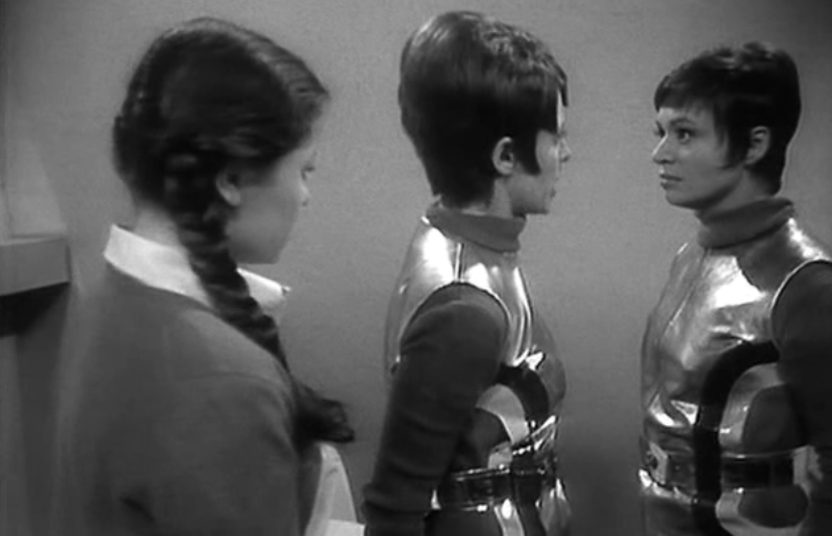Available on DVD Now
Simon (Spencer Banks) is a nerdy science geek, sharing his holidays with Liz (Cheryl Burfield) and her parents. It’s 1970 and a time when inbetweeners are allowed freedom to roam away from the parental eye. Attracted by the ‘keep out’ sign at and abandoned Ministry of Defence site, the enterprising duo discover a wormhole that takes them back in time to the same spot in 1940. German soldiers have infiltrated the naval station in which Liz encounters her own father as a young man.
The key to all successful children’s TV is never to talk down to the audience, and there’s no danger of that here. From the sonorous signature music to the creepy villains it might not be as scary as the Cybermen, but there’s high tension and the danger seems real enough. It’s a bit like Enid Blyton meets Quatermass. Each series (this is the full collection in a long-awaited box set) opens with Peter Fairley – then ITV’s science bod reporting regularly on the Apollo space program on the news – doing a po-faced piece to camera talking about how all too often ‘science fiction becomes science fact’.
Since Timeslip‘s first screening it’s only been seen on TV rarely, perhaps in part because it is mostly in black and white. Only part of one episode is in colour due to a tech glitch during production. Back in the day it made a big impression on viewers and came as a welcome relief to the dominance of Doctor Who. And it’s great to see children at the centre of the action reflecting the lives of young audiences. Who, as a suburban teenager, didn’t want to escape into another dimension?
In the second series Simon and Liz are transported into the future. They land in a laboratory on the South Pole where personnel dress in silver jumpsuits while Commander Deveraux (John Barron) goes quietly off his rocker. Liz can’t believe that they’ve jumped so far forward in time… to the year 1990.
The stories become increasingly interesting when the children meet their own grown-up selves in the future and are appalled at the self-obsessed and uncaring people they have become. There’s a real-life coda in the extras when we see the child actors as talking heads 30 years on.
Some of the storylines are alarmingly prescient – from laser communication, to genetic cloning, and even climate change; and the overweening dependence on computer technology we all now live with every day. ‘The computer never makes mistakes,’ says Devereaux. Some of the acting might be a little soapy (there are a lot of cut-glass accents) but there are some big names. Dennis Quilley plays the fastidious Commander Traynor, and the science all sounds rather plausible thanks to astronomy advisers Fred Hoyle and his son Geoffrey.
